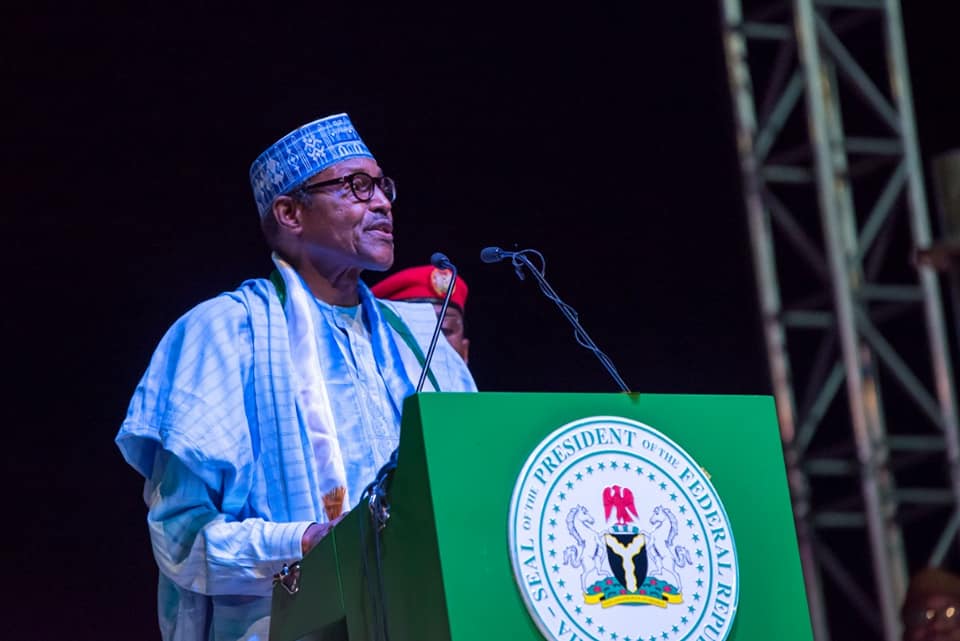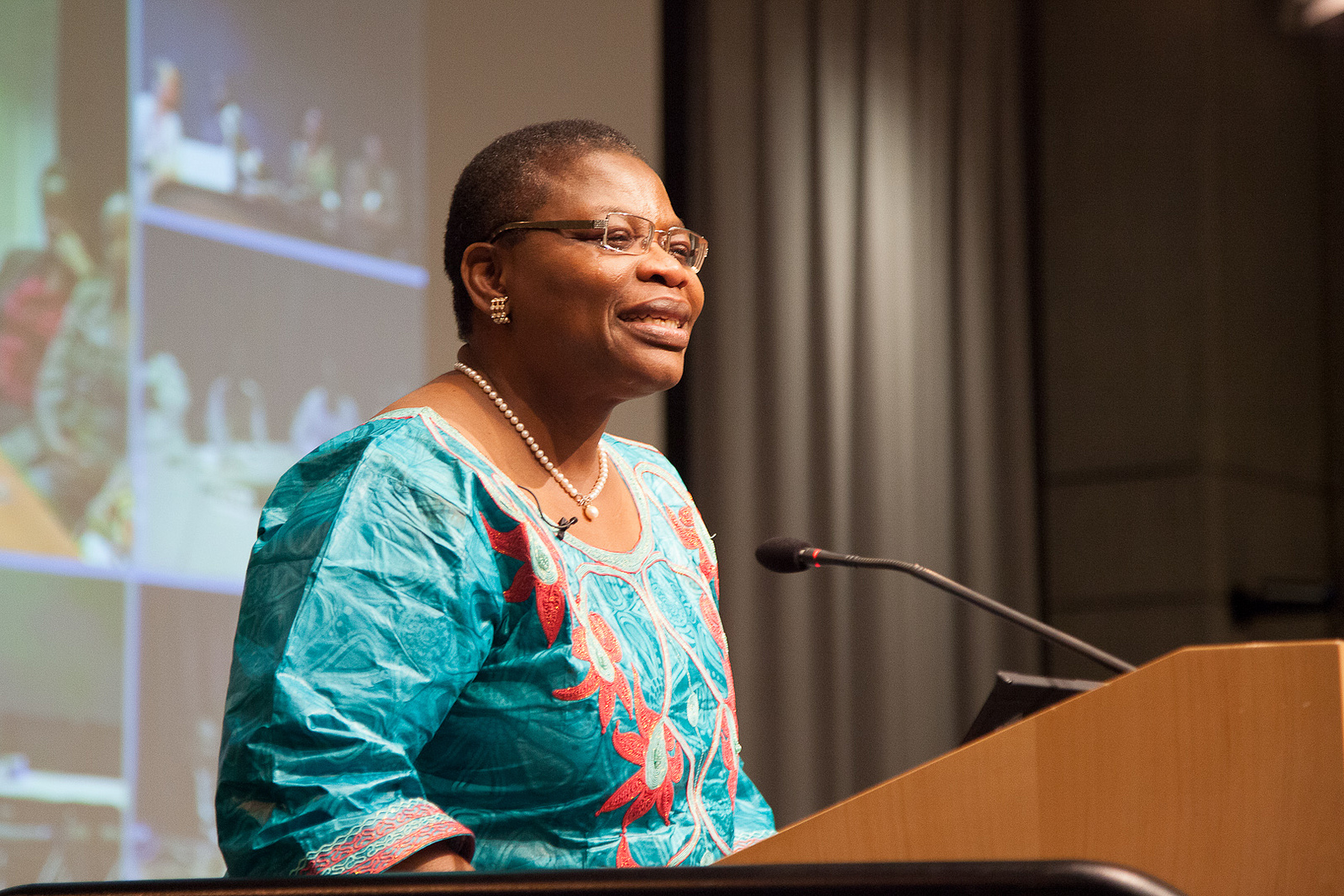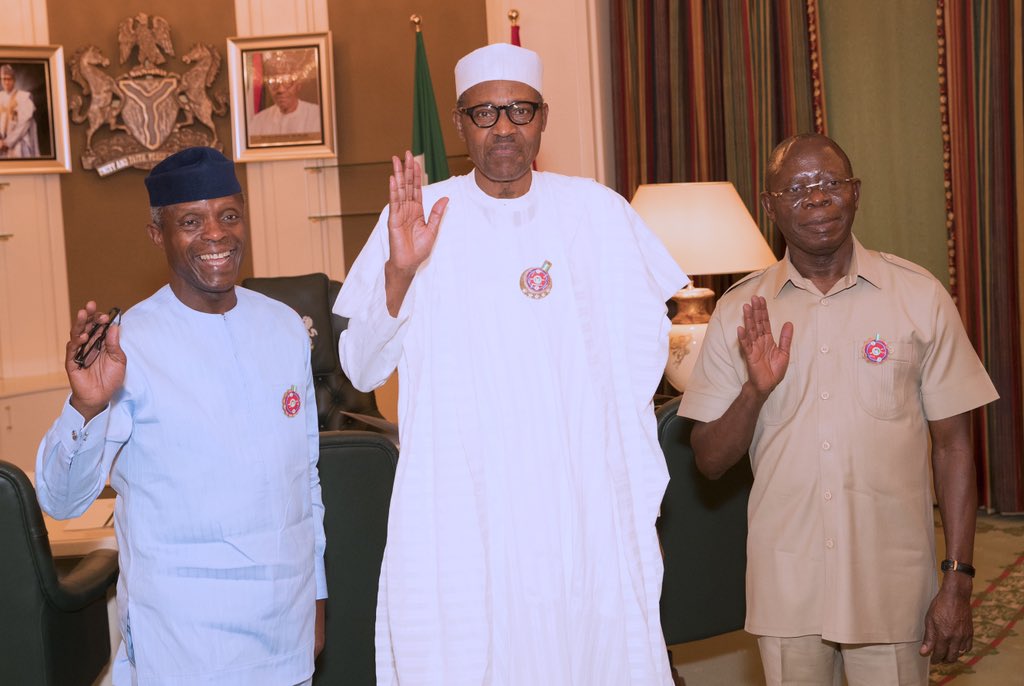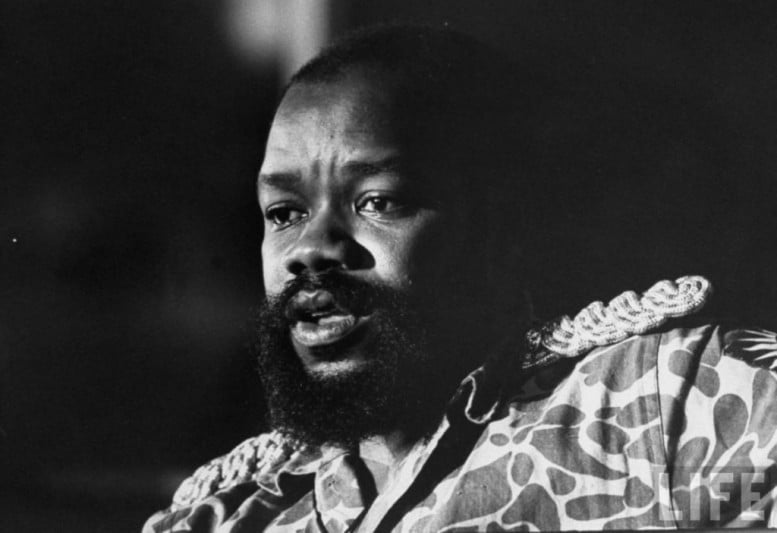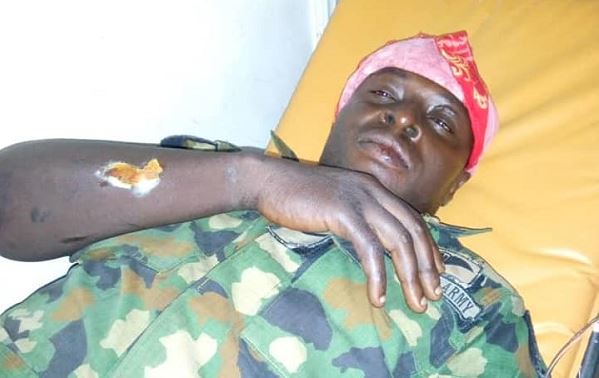Every government always has what I call the Jega moment. Even in advanced democracies, in spite of the sophistication of their governance, politics and powerful institutions, the Jega moment always comes. Broken to its brass-tacks, the Jega moment is that feisty moment that tests an administration’s capacity to jump into an oceanic tidal wave without a life-jacket. The Jega moment tests the rawness of a government’s brunt as to whether it can bite the bullet. It is akin to that biblical Esther’s valiant “If I perish, I perish” statement.
The Jega moment is reference to the dilemma faced by Goodluck Ebele Jonathan over Mahmud Jega, professor of politics and former Chairman of the Independent National Electoral Commission (INEC). Prior to the 2015 election, my sources said Jonathan was privy to alleged Jega’s slant towards Muhammadu Buhari. The hawks in his government gave Jonathan security reports to that effect. He had a choice: sack Jega and face untoward public opprobrium but retain power post-2015 or retain him and see the creeks of Otuoke on a very regular basis. Pusillanimous apparently, Jonathan took the second option but believed that, among other things, the staff of office arranged on his head while he knelt down in the presence of Yoruba kings would make the mansions in Aso Villa, rather than Otuoke creeks, the constant figures he would confront thereafter. As that cliché says, the rest is now history.
In the afternoon of March 9, 2007, President of Pakistan, General Pervez Musharraf also confronted his Jega moment. Unilaterally and in defiance of Pakistani people, he suspended Pakistan’s Chief Justice, Justice Iftikhar Mohammad Chaudhry. Within a few hours, he had appointed the country’s next most senior judge available, Justice Javaid Igbal as the acting Chief Justice of the Supreme Court. Within minutes of that order which took the country by storm, Pakistani legal fraternity and the world in general were taken by storm on the diffident manner with which the topmost adjudicator was maltreated. Their averment was that Musharraf had, by that order, taken his dictatorship to its apogee, stomping, in his military jackboots, on the supremacy of Pakistani constitution, rule of law and flagrantly violating the sanctity of separation of powers. By May 12, 2007, in Karachi alone, at least 42 people were reported to have been killed and 140 injured in riots which erupted in this Pakistan capital and largest city. Thousands of roads were blocked and cars burnt in the melee.
For Buhari, whose most dominant Achilles’ heels as he went into the 2015 election was fear that the military dictatorial gene resident in his gene and manifested in 1984 would sidle back in civilian garbs, 2015 prophets of doom are the Nostradamus of today. Over the Sambo Dasuki and Ibrahim Ya’qoob El–Zakzaky matters and in the ransack of Daily Trust newspaper, Buhari has since proved that once a dictator is always a dictator. But perhaps the most notorious of that vermin that dwells in his being is the Walter Onnoghen, Nigeria’s Chief Justice’s suspension of last Friday.
Advertisement
That action was Buhari’s own definitive crossroads akin to Jonathan’s in Jega. It is apparent to political watchers that the way Buhari’s reckoning has dimmed considerably over the years, the February election may be too close to call and the Atiku Abubakar, whom the Buhari government’s gross incompetence and manifest mis-governance promoted into political reckoning, is foisting on Nigeria an Odinga-Kenyatta model. The fear is that, that model is in the offing in Nigeria. From all indications, this is what is egging Buhari into these anarchist missteps over Onnoghen. You will recall that Raila Odinga, presidential candidate of the National Super Alliance, (NSA) had sparred with Uhuru Kenyatta, incumbent president, in an election which the latter was leading with 54.2% of the votes, compared to Odinga’s 44.7%, a margin of 1.4 million votes. But the Kenyan Supreme Court annulled the result in August, 2007, citing manifest irregularities. My sources again told me that some hawks in the Buhari government had flung a red flag over Nigeria’s Supreme Court as where the martial song in the February election would be sang. They mentioned judges they claimed were pro-PDP, including Onnoghen, as reason why they must make an ingress into the Supreme Court, in whatever form.
But the desperation with the way the Buhari government is seeking to retain power after May this year, the unintended consequence may well be the Gbagbo model in Ivory Coast, world’s largest producer of cocoa.The Presidential election held in the country in 2010 is beginning to have a flavour reminiscent of Nigeria’s current electoral drama. The first round of that election was held on October 31 of that year and the second, on November 28. Then incumbent President, Laurent Gbagbo and erstwhile opposition leader, Alassabe Quattara, had traded tackle. Ethnicity was deployed in the elections between the country’s Northern and Southern peoples. Gbagbo had a strong support base from his southern people, while Ouattara, former Prime Minister, was firmly rooted in the North. More importantly, Quattara had the support of foreign powers, including France. For a country that had then recently emerged from a civil war, ethnicity as dominant thesis frightened the world and raised tension in the election. Violence was ten a dime on the streets and on December 2, 2010, Ivory Coast’s electoral commission, in its released provisional results, said Ouattara had won the second round election with 54% of the votes. But Gbagbo had the Constitutional Council declare the contrary and he, the winner. The result was that he and Ouattara claimed they were victorious in the elections and separately swore themselves in, leading to the 2011 Ivorian crisis.
As Buhari came into power seizing on Nigerians’ apprehension that the incubus of corruption might be the death of their beloved country and mouthing the mantra as his forte, Gbagbo, born into a Catholic family in Gagnoa, cocoa-growing central-west of Cote D’Ivoire on May 31, 1945, was a listener’s delight. In fact, he was nicknamed Cicero on account of his deft gift of the garbs. He had a PhD in History and was said to often mouth Latin while in school. Like Buhari who many Nigerians saw, pre-presidency, as disdainful of corruption, Gbagbo also promoted a mantra of suffering for the cause of his people. Indeed, he assumed the sobriquet of “little brother”. Starting his career as a university lecturer, he was, in 1971, jailed two years on charge of teaching subversive lectures in class. He emerged therefrom into involvement in trade union activism as a lecturer and confronted Ivory Coast’s maximum ruler president, Houphouet-Boigny in the 1980s and in 1982, went on exile to Paris. Like Buhari latching on the general disdain for the huge corruption under Jonathan to win, Gbagbo also surfed on general disdain for the government of President Henri Konan Bedie by holding tight to the twine of the widespread xenophobia in that regime. Bedie had earlier ousted Ouattara by introducing the concept of “Ivorians for Ivory Coast,” as response to Ouattara, a Muslim who was said to have family ties with neighbouring Burkina Faso. Today, Gbagbo is in a small prison at the International Criminal Court (ICC) in Hague, captured in a bunker at the Presidential Palace in April, 2011 and forced out of office by French-backed forces.
Advertisement
Buhari’s recourse to spitting on the constitution he swore to uphold, his desperation for a second term., as well as that of the hawks surrounding him – in whose veins blood does not flow – will certainly drag Nigeria towards Cote d’Ivoire and land Buhari on the laps of Gbagbo. If Chief Justice Onnoghen is guilty of all those fabulous allegations levelled against him, he certainly deserves to rot in the hottest part of hell. But, Buhari does not have the constitutional power to sack him. Draftsmen of the constitution apparently didn’t envisage that a day would arise that a Chief Justice of Nigeria, who is also the Chairman of the National Judicial Council, (NJC) would be accused of such mind-boggling corruption, thus leaving Nigeria in a quandary of what to do with him. However, Buhari’s action of recourse to self-help, rather than the constitution, to solve this constitutional lacuna is a model found only in Hastings Kamuzu Banda, Papa and Baby Doc of Haiti or in the government of Felix Houphouet Boigny.
It is apparent that the haste to remove Onnoghen before the February election is Buhari’s frenetic attempt to prevent the Kenyan equation from happening to him. In the course of doing that however, he is dragging Nigeria towards Cote d’Ivoire and himself closer to giving Gbagbo a fraternal embrace. The frown of America and other western democracies to this sack is revealing of how Buhari is fast taking after Gnagbo, They issued Laurent same veiled threat. As Gbagbo’s dictatorship created Quattara, Buhari’s manifest mis-governance of the last three and half years not only moulded Atiku Abubakar, it is drawing unto this erstwhile pariah global and national affection. This Onnoghen sack has even done more. It has shown that Buhari is as desperate as any despot the world over. You do not need a binocular to see vultures hovering in the Nigerian sky.
Growing cult of pants scavengers
A social menace is trending in Nigeria today and is more dominant in the southern part of Nigeria. It sounded so incongruent and unreal until public examples were made. In rituals epistemology, stealing of female pants is far growing higher than the variant we were more used to – using human parts for sacrifice. From the confessions of suspects, it has become glaring that this pants stealing is an act perpetrated by fraudsters, otherwise known as Yahoo Yahoo Boys who, confronted by the dullness of the fraud business, are divesting into rituals. In the last few months, the market or its phenomenon, is said to have been on the upswing. The way it goes is that, discharges inside the pant by the female gender is said to be a potent recipe for money rituals.
Thus, pants spread on line are the surest attraction of these Mephistopheles. In an Ogun State town called Ilese-Ijebu recently, a pants thieves were said to have stormed its female hostel. Disguised as a female, he was said to have been apprehended and the bulky bag he carried found to contain several female pants. Also in Mgbakwu, Awka North Local government of Anambra State, one Ifeanyi was said to have escaped being lynched when he was caught stealing female under-wares.
Advertisement
Now, if this isn’t Armageddon, I don’t know what else is. Gradually, we are confronting the total deconstruction of man and his fast return to the default mental mode of his ape ancestors. In the pursuit of money, man gradually slips to the stage of an ordinary mammal and doesn’t have any gumption from behaving otherwise. Worse hit are our children. Unlike people of our generation who still have some strands of chastity to hold on to, the current generation has no such twine to hold to and the model that plays atop their minds is the cruel, wicked and insensate pursuit of material life. Our generation, which thus benefitted, is not bothered about passing its modicum of morality downwards. Those days, our parents would teach values, teach character and knowledge. In my current pursuit, I deal with young boys and girls of between 20 and 25 years and I can say that the population of children who are not passed unto the impregnable nugget of character far outweigh those who are. It is a money, money society. The songs they sing underscore wealth and they boldly claim they don’t care how it is got. Our governments also worsen the case as there is no provision for children in their immediate, long or even foreseeable plan. The children go through the stress of education and come out to confront joblessness. They thus don’t have any scruples dealing society a blow.
We, their parents and runners of governments, are the culprits of this growing cult of pants scavengers. If someday we get to the presence of our Maker, I wonder what our allocutus would be to be saved the judgment of the hottest part in hell.
For humanity, tragedy creeps in like the agama lizard
A friend told me the story of an elderly man he went visiting a few weeks ago. The man was his teacher in the primary school and decades after, told that the man, who turned 80 years in December, was still around, he and another student of the old man’s, decided to pay him a visit. The duo were more compelled to pay their former teacher a visit because he was bereaved and thus couldn’t celebrate his arrival in the octogenarian age. He had just lost one of his children, a policeman, in Sokoto, to bandits who are currently terrorizing that part of the country, a menace that has cost hundreds of human casualty and to which both state and federal governments have very feeble responses to. The young man had been transferred to Sokoto State and in the process, had to be engulfed by the banditry that has literally consumed the state.
That the young policeman was killed wasn’t actually the story as the fact that, his bereaved family had to literally bear the cost of transporting his remains from Sokoto to Osun State. The police, I was told, barely scrounged out some pittance and left his family to ferret for the remainder.
Advertisement
Two very critical morals can be gleaned from this calamity. First is that, as a collective, we should be bothered about the fate of humanity wherever it may be threatened, whether in Zamfara, Nchatancha or even in any remotest part of the world. How could that family have known, at the outset of the banditry, that it would sit in the remote state of its and only to shed tears on account of a menace in Sokoto? When some parents are not teaching their children and they end up becoming social miscreants, they are the ones who enter the homes of hard-working, well-brought up children of ours and abridge their lives peremptorily.Almajiris whom we shudder at their thoughts, I am told, are willing recruits of Boko Haram now. A few years ago, some Ibadan, Bodija market traders going to the North to buy their goods, were reportedly slaughtered by Boko Haram insurgents somewhere in the northern enclave. How could their families have ever thought that they would partake of a menace that should ordinarily be a northern affair? Even national budget-wise, funds that should go to our upkeep and development as a nation are spent on imaginary military armament in the fight against the insurgents. So, when some people fail to bring up their children or bring them up haphazardly, they become burdens on those of us who spend Naira equivalents of oozes of their blood taking care of theirs.
In the late 1990s when the Charles Taylor, Samuel Doe intransigence, which resulted in a war, began, Tayo Awotunsin and Kris Imodibe’s families never imagined that they would partake of that intransigence from a country not theirs. In the late 1990s when the Sierra Leonean war broke out, my family never knew we would get a slice of our own calamity from the intransigence, until my younger suddenly went and joined the army and in less than six months of his enlistment, was airlifted to the war front. I got a terse message from the army as his next of kin that “your brother was missing in action.” I imagine how many more Nigeria has killed in such mindless manner.
Advertisement
When I heard about the young policeman killed in Sokoto, I reckoned that the police may either not give his family his entitlement or give him a sorry amount as death benefit. Till today, my family hasn’t got a kobo from the Nigerian Army that sacrificed my brother. We do not have any account of his remains either. It is the tragedy of our lives as Nigerians.
Advertisement
Views expressed by contributors are strictly personal and not of TheCable.
Add a comment


